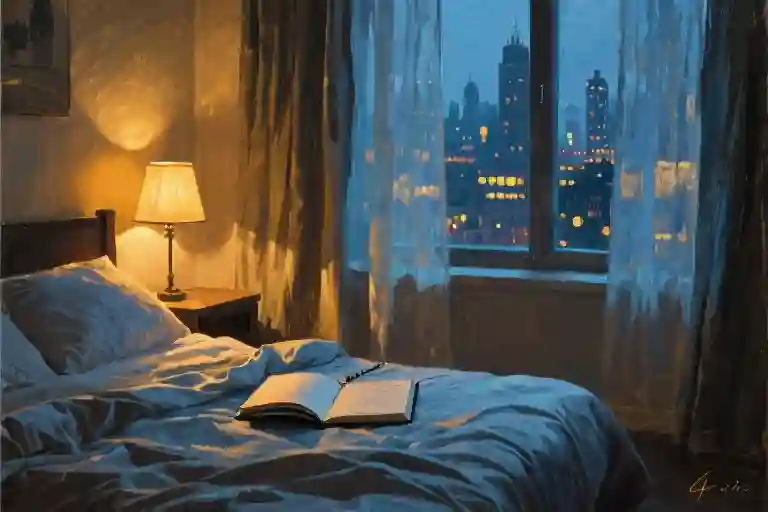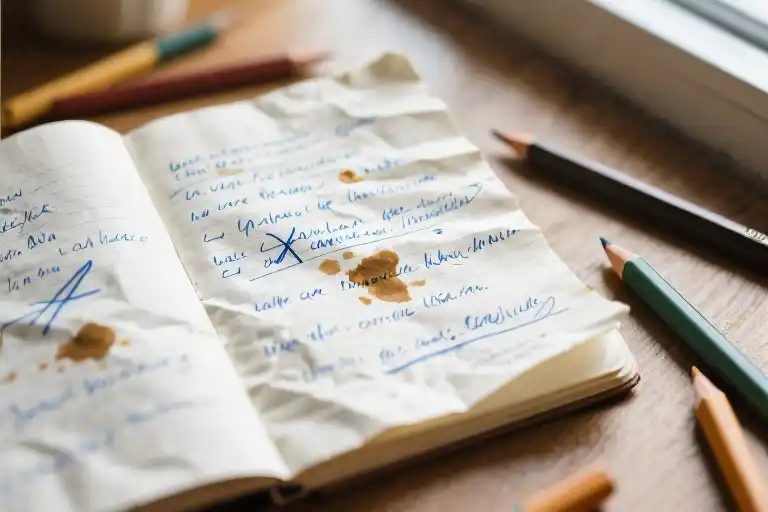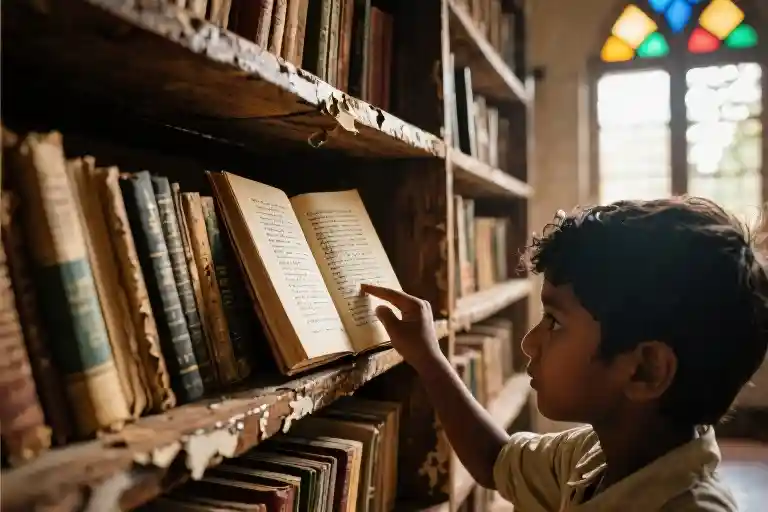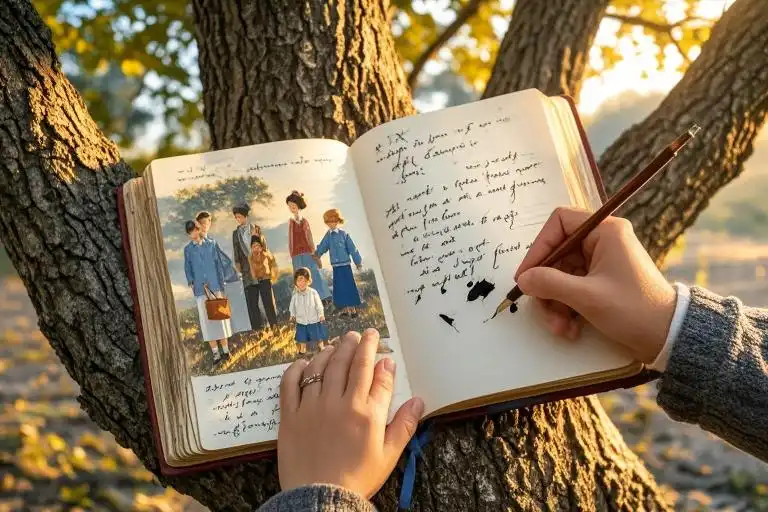The blue glow of the clock reads 4:12 a.m., that liminal hour when darkness feels both infinite and fragile. My crumpled sheets bear witness to another night of failed surrender, while outside the window, the occasional hum of a distant airplane stitches through the silence like a stray thought. This is when the world feels most honest—when streetlights outnumber headlights, when thoughts unfold without censorship, when the weight of unwritten words presses heavier than sleep ever could.
Nighttime has a way of amplifying ordinary things. The refrigerator’s intermittent buzz becomes a metronome for my racing mind. A neighbor’s muffled cough three floors down echoes like a secret shared between insomniacs. And always, always those airplanes—their engines carving invisible highways across the sky, each one a reminder of lives moving while mine stays suspended in this dimly lit pause.
I used to resent these hours, seeing them as stolen time. Now I recognize them as the only moments when I’m not performing for anyone—not even myself. There’s a peculiar freedom in being awake when the world dreams. No emails queuing up their demands, no notifications shattering focus, just the quiet companionship of my own unfiltered mind. The thoughts that seem too messy for daylight hours stretch their limbs here, unapologetic and raw.
Somewhere above me, passengers are crossing time zones. A businessman reviewing spreadsheets, a student returning home, a couple holding hands during turbulence—their stories briefly intersecting with mine through the thin membrane of night. I wonder if any of them glance out their windows at the scattered lights below, imagining the lives happening under that constellation of streetlamps and bedroom windows. Do they ever suspect someone down there is imagining them right back?
This is the hour of unfinished things. Half-composed text messages still glowing on my phone screen. The opening lines of poems that will never find their endings. Conversations I rewrote a dozen times in my head but never spoke aloud. There’s beauty in these fragments, though—proof that not every feeling needs resolution, not every thought requires an audience. Sometimes the act of holding them is enough.
Dawn will come eventually, with its obligations and armor. But for now, I’ll stay here a little longer, listening to the quiet symphony of a sleeping city—the occasional car passing like a stray note, the wind testing the limits of its freedom, the persistent typing of my fingers giving shape to all the things daylight won’t have time for.
The Insomniac’s Mime Show
The refrigerator hums its midnight tune—a steady, metallic purr that syncs with the pulse behind my eyelids. Somewhere beyond the drywall, a neighbor’s dream escapes as fragmented murmurs, syllables without meaning. These are the sounds that fill the hollow spaces when the world turns its back to sleep.
My phone screen glows with abandoned conversations. Half-formed messages linger in drafts, their sentences amputated mid-thought. “I think we should—” deletes itself before the period lands. “When you said that, I actually—” dissolves into the backspace key. These digital ghosts hover between us, more real than the words I dared to speak aloud.
Three tabs remain open from yesterday’s unfinished work. A spreadsheet with numbers that stopped making sense after 2 a.m. An article about circadian rhythms I ironically bookmarked during another sleepless night. The browser cursor blinks like a metronome, counting the seconds I’ve wasted pretending productivity might come if I stare long enough.
Outside, a car door slams. The sound ricochets through the silent street, sharp as a gunshot. For a moment, I imagine it’s someone coming home—keys jingling, shoes kicked off, a body collapsing onto creaking springs. But the engine noise fades westward, leaving only the refrigerator’s persistent drone. Another stranger passing through the night, no more anchored here than I am.
This is the hour when memories unpack themselves without permission. That awkward pause in yesterday’s meeting replays in Dolby surround sound. The way my boss’s eyebrow twitched when I suggested the timeline was unrealistic. The email I should’ve sent to clarify but didn’t. The apology owed to a friend that’s now three weeks overdue.
I reach for the notebook beside my bed—its pages warped from nights when condensation rings formed beneath sweating water glasses. The pen leaves indented trails across the paper, each loop and slash pressing deeper than necessary. These aren’t words so much as bodily secretions, the kind of raw material that would embarrass me in daylight. Yet here, in this private theater of shadows, the performance demands complete surrender.
A plane’s engine growls overhead, its trajectory marked by blinking lights I can’t see through the curtains. The sound always arrives seconds before I consciously register it, as if my body keeps better time than my mind. I picture passengers cocooned in pressurized cabins—some watching city lights scroll beneath them, others sleeping through the miracle of flight. Their journeys seem purposeful compared to my stationary unraveling.
The notebook page fills with half-sentences that trail into doodles. A spiraling coil that could be a hurricane or a fingerprint. Stick figures holding hands at the edge of the margin. This is how insomnia scripts its silent play: not in grand soliloquies, but in discarded props and unfinished scenes. The mime show of the sleepless, performed nightly for an audience of one.
The Refuge of Paper
The notebook lies open on my knees, its pages blank except for the occasional coffee stain or smudged fingerprint. At this hour, writing feels less like creation and more like excavation – digging through layers of unspoken words to find what’s been buried beneath the daylight performances.
Here’s what I wrote last night, in handwriting that slopes dangerously toward the edge of the page:
“Dear You, The airplane just passed overhead again. I counted seven this night – seven metal birds carrying people who don’t know my name. Do you ever look down at the scattered lights below and wonder who’s awake?”
The poem breaks off there, mid-sentence. Most of my nighttime writings do. There’s something about the darkness that makes conclusions feel unnecessary, as if the act of beginning is enough. These aren’t compositions meant for readers; they’re conversations with the silence itself.
On the opposite page, a letter that will never be sent:
“I still set an extra coffee cup out sometimes, though no one comes for breakfast anymore. The neighbor’s dog barks at 6:15 every morning – you’d laugh at how precisely I’ve come to measure time by other people’s routines.”
Writing at night becomes its own kind of dialogue, one where I can say all the dangerous things that daylight politeness filters out. The page doesn’t wince at confessions or judge unfinished thoughts. It simply receives.
Psychologists call this “expressive writing” – the practice of pouring unfiltered emotions onto paper as a form of emotional release. But at 3 a.m., it doesn’t feel therapeutic. It feels like whispering secrets to a confessional booth where the priest has fallen asleep. The relief comes not from being heard, but from no longer carrying the weight of unspoken words.
These midnight pages accumulate like sedimentary layers – drafts of apologies I’ll never deliver, imaginary conversations with people who’ve left, revised versions of painful memories where I emerge wiser instead of wounded. The writing isn’t good. It’s messy, repetitive, occasionally melodramatic. But it’s honest in ways my daylight self can’t afford to be.
Sometimes I imagine all these unsent letters and abandoned poems floating up into the night sky, caught in the jet streams of passing airplanes. Maybe someone’s reading them right now through oval windows, these fragments of a life they’ll never know. Or perhaps the words simply dissolve into the atmosphere, becoming part of the static between radio stations.
What surprises me most isn’t what gets written, but what consistently emerges across these pages – certain phrases that reappear like refrains, certain names that surface repeatedly despite my conscious efforts to avoid them. The nighttime self has its own priorities, its own stubborn truths it insists on examining.
There’s safety in knowing these words won’t be read. Like childhood diary entries locked with flimsy keys, their power lies in their privacy. The act of writing them matters more than their content. Each sentence is both a release and a reckoning – with memories that won’t fade, with versions of myself I’ve outgrown but can’t quite release, with loves that turned out to be finite despite being promised as endless.
Dawn will come soon. The notebook will close. These raw, unpolished thoughts will be tucked away like contraband before the world wakes and demands coherence. But for now, in this quiet hour measured by passing airplanes, the page accepts everything – the contradictions, the unresolved pain, the hope that still flickers despite all evidence. It asks only that I keep writing, one imperfect word at a time.
Thirty Thousand Feet of Separation
The radar blips don’t lie. Between 3 and 5 a.m., this air corridor becomes an invisible highway for international flights – seventeen passing directly overhead according to the flight tracker app I’ve stared at too many sleepless nights. Each dot represents three hundred lives suspended in aluminum tubes, breathing recycled air while I sit anchored to my bed by thoughts that won’t decompress.
Sometimes I play a game when the low-frequency hum vibrates through my window. I invent stories for the passengers. There’s the woman in 14C clutching immigration paperwork, her lap a nest of documents smoothed and refolded seventeen times. Two rows back, a consultant watches Excel sheets reflected in his glasses, calculating time zone conversions for a meeting he’ll attend on three hours of fitful sleep. And up in first class – though I try not to imagine that section – newlyweds share a single headphone, listening to a playlist called ‘Runaway’ while their families’ voicemails go unanswered.
Flightradar24 tells me BA217 is heading to Dubai right now. I wonder if anyone aboard is looking down at the constellation of streetlights below and imagining my life instead. Do they see the glowing windows and picture someone warm in bed, unaware that at least one insomniac is tracking their progress across the Atlantic? The reciprocity of loneliness never fails to startle me – all of us simultaneously isolated and connected by our private narratives.
Night flights carry different cargo than daylight ones. Less vacation laughter, more unspoken transitions. The red-eye specials ferry people between versions of themselves – the before and after of diagnoses, divorces, departures. I know this because I’ve been both the leaver and the left, though never at thirty thousand feet. My transformations always happen closer to the ground, in bedrooms and parking lots and the fifteen minutes before someone’s alarm goes off.
At this altitude, the plane passengers experience a literal liminal space – not here nor there, suspended between origin and destination. I recognize that feeling. My 4 a.m. thoughts live in the same in-between, no longer yesterday but not quite today. We’re all just temporary residents of the not-yet.
The app pings with an update – BA217 has crossed into Canadian airspace. Somewhere above Newfoundland, a flight attendant serves coffee to a man who’ll propose at sunrise. In seat 22F, a woman presses her forehead to the cool window, watching darkness fade to indigo. And down here, I count the minutes until my own personal dawn, when I’ll exchange one kind of performance for another. The planes keep moving. So must we.
The Costume Change at Dawn
The first sliver of daylight always arrives like an uninvited guest. I watch it creep across the bedroom floor with mixed feelings – that pale blue light exposing the truth of yesterday’s mascara smudges, the empty coffee cup from last night’s vigil, the notebook left open at a particularly raw page. This is the moment when the night’s honesty starts feeling dangerous.
There’s a ritual to this transformation. Fingers dab concealer under eyes that burned with unshed tears hours earlier. The same mouth that whispered confessions to the darkness now practices neutral smiles in the mirror. I compile mental lists of acceptable daytime topics like someone preparing for battle: weather, weekend plans, anything that won’t reveal the 3am version of myself.
A reader once described this process perfectly in a letter: “By day I approve vacation requests and mediate printer disputes. By midnight, I’m writing sonnets about the barista who misspells my name.” We become experts at these dual lives. The HR professional who journals about interstellar loneliness during lunch breaks. The accountant whose phone notes contain existential haikus between spreadsheets.
What fascinates me most are the physical remnants of this nightly unmasking. The crumpled tissues beside the bed that held midnight truths. The half-empty water glass positioned just so to catch the glow of a laptop screen. These artifacts could tell stories our daylight selves would never confess – how we traced old scars with trembling fingers, how we reread decade-old text threads until the words blurred.
Morning brings its own peculiar grief. Not just the loss of privacy, but the way sunlight makes last night’s certainties seem melodramatic. What felt like profound realizations at 4am become embarrassments by 9am. We dismiss our nocturnal wisdom as sleep deprivation, forgetting that darkness often removes the filters we didn’t realize we’d installed.
Yet there’s unexpected power in this daily costume change. The very act of transitioning between selves proves we contain multitudes. That HR professional’s sonnets matter as much as her performance reviews. The accountant’s haikus hold equal weight with his balance sheets. Perhaps integration isn’t about choosing one identity, but learning to carry all versions with grace.
As the world outside my window gains definition – the mail carrier starting her route, school buses groaning to life – I take one last look at the notebook left open on the desk. The page bears evidence of last night’s unrest: ink smears where my pen hesitated, coffee rings like halos around certain words. I could close it, hide it in a drawer. Instead, I leave it exactly as it is. A small act of rebellion against the coming day’s expectations.
The final touch is always the same: a deep breath that somehow contains both surrender and resolve. Then the turning of a doorknob, the step across the threshold into daylight’s theater. Behind me, the unmade bed and open notebook keep silent vigil. Waiting, like faithful accomplices, for nightfall’s next confession.
The Last Plane Before Dawn
The hum fades first—that low, distant vibration of engines cutting through the predawn hush. I watch through the window as the blinking lights dissolve into the fading dark, another anonymous vessel carrying anonymous lives to places I’ll never see. My coffee cup sits empty on the desk, its rim stained with the ghost of last night’s lipstick. The steam stopped rising hours ago.
This is how my nights often end: not with resolution, but with retreat. The words I’ve spilled across pages won’t change anything by sunrise. The letters will stay unsent, the poems unseen, the truths I’ve whispered to the shadows unheard by daylight ears. Yet still I write, as if the act itself could anchor me against the tide of morning’s expectations.
Outside, the world begins its reluctant wakening. A delivery truck rattles down the alley. Somewhere, a shower turns on. The night’s fragile honesty starts buckling under the weight of ordinary sounds—the clatter of dishes, the shriek of a kettle, the performative cheer of a radio host. I used to resent this intrusion, but now I recognize it as mercy. The dawn doesn’t care about my unsaid things; it comes anyway, indifferent and insistent, dragging me back into the costume of daylight.
I used to imagine boarding one of those passing planes. Not to any particular destination, just away—from the roles I play, from the careful curation of my visible self. But the fantasy always dissolves when I consider the reality: even at 30,000 feet, I’d still be myself. The same thoughts would follow me through the clouds. The same words would clot in my throat.
So instead, I stay. I watch the sky lighten from black to bruised purple to the pale blue of surrender. The last airplane of my private nighttime ritual fades into the east, carrying someone else’s story. My fingers hover over the notebook, hesitating on the edge of one final sentence. There’s comfort in knowing tomorrow night the planes will return, the darkness will listen again, and these pages will hold whatever I need them to hold.
The coffee cup goes into the sink. The notebook slides into the drawer. Somewhere beyond my window, a bird begins its rehearsed song. I take a breath that feels like armor clicking into place.
Tomorrow, perhaps I’ll board that plane. But tonight—just tonight—let me finish this line.





